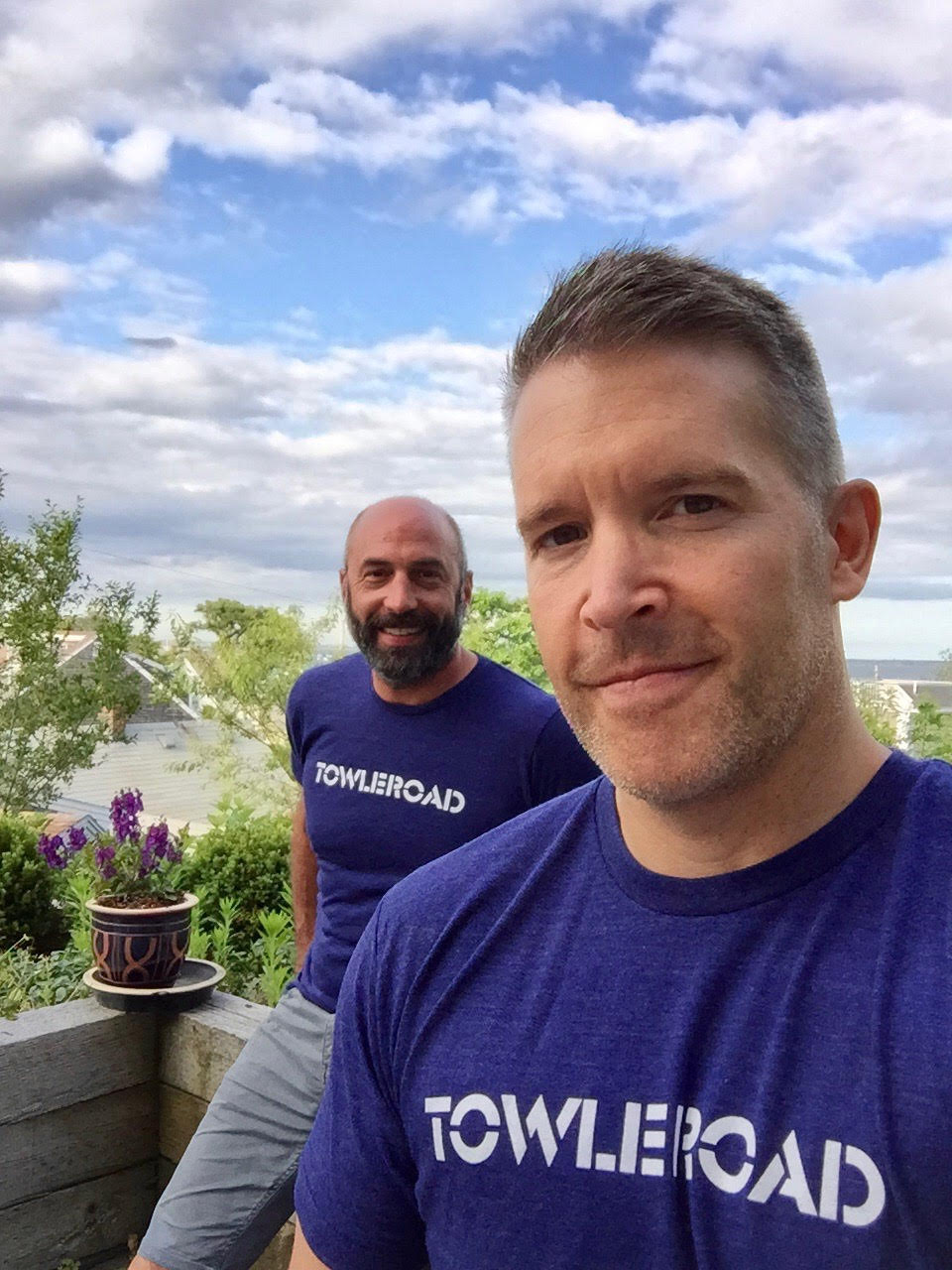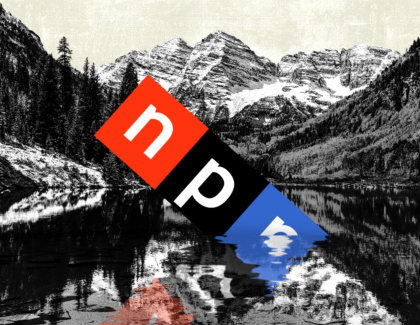Sign up for the daily CJR newsletter.
Towleroad began as a hobby. An LGBTQ news site, it was started in 2003 after its founder and editor-in-chief, Andy Towle, left Genre, a gay lifestyle magazine. Pronounced “toll road,” it rose to prominence during the gay blog boom of the late 90s and mid-2000s, when it became appointment reading for a devoted fanbase. “Towleroad was just a cute idea I came up with, not knowing that it was eventually going to turn into what it has,” he says.
In 2005, Towle was joined by Michael Goff, a founder of Out magazine, who became co-owner and CEO of Towleroad. It seemed the dawn of a golden age of gay digital media; the same year brought 365Gay, a gay news outlet produced by LOGO, and The Backlot, a companion site to AfterEllen.com focused on gay and bisexual men. A few years later, HuffPost, BuzzFeed News, and NBC News launched verticals dedicated to LGBTQ coverage. Other publications began paying greater attention to stories of importance to queer readers.
RELATED: Surviving the boom and bust of queer media
But many of the sites that grew up around Towleroad have since gone under. 365Gay and The Backlot ceased publication in 2011 and 2015, respectively; AfterEllen has persisted largely in name only. HuffPost and BuzzFeed announced massive layoffs early this year, and their LGBTQ news teams were among the hardest hit. BuzzFeed LGBT only has one full-time staffer remaining. Most recently, Grindr, the queer dating app, shut down INTO, its LGBTQ news and lifestyle website, after just 17 months.
Towleroad hasn’t been immune to changes in digital media. It’s a smaller shop than larger competitors like Queerty, Out, and The Advocate; over the past month, readership tallied 865,000 unique views, down from a peak of 2.2 million in February 2016. “It just gets harder,” Goff says. “We work harder for less. I’ve always said the most radical thing we could do was to stay alive.”
Towle, who is 51, claims that Towleroad—which generates revenue through advertising and, occasionally, sponsored content—maintains a small staff with little overhead. Fastidiously polite and serious in conversion, he talked with CJR about how his independent blog has continued to survive.
This interview has been condensed and edited.
When Towleroad was founded, were there other websites that you looked at for inspiration?
Not really. In the early days, there were some blogs that were focused on media, and I thought I could do something that was focused on gay media and gay news since I was doing that already, but there weren’t really a lot of examples at that time. Within a year or two, there were a handful of early bloggers doing political and gay-related stuff: Pam’s House Blend, Joe.My.God, and Andrew Sullivan’s blog, but they weren’t really doing gay lifestyle coverage.
What initially made you feel that there was potential to tell queer stories on the Internet and attract interest from a readership?
I didn’t. It was a shot in the dark just based on knowing and seeing what the format of blogs could do because there was really nothing like that before. The format of being able to self-publish lent itself to sharing information with people. At the time, LGBTQ people really had no rights at all. It was before Don’t Ask, Don’t Tell and marriage equality.
What was covering LGBTQ news like at a time when the community didn’t have as many rights as it does now?
In the early days, blogging was the new media, and there became a collective of smaller sites that would support each other. We would all report on what was going on and share information with each other. It was just about getting that information out to people so they could be proactive because there was really no other way than the internet to get information out on a daily basis. If you publish a print publication, it’s going to be out three months down the road, it’s not going to be something that people can take action on.
RELATED: Steven Thrasher on what queer experience adds to any newsroom
What did building an audience look like in the days before social media? How did you accomplish that goal?
Where the audience has come from has changed a lot. In the early days, when I first started Towleroad, it seemed like the traffic came out of nowhere. Once a lot of other people started developing blogs, LGBTQ blogs would support each other by linking to each other. It was much more interactive. All of our traffic was really, in those days, built from referrals from other smaller websites. It’s changed over the years. Once Google and the other search engines started indexing blogs and when they became a legitimate part of the conversation, we started getting a lot of traffic from that. Then social media came along.
What was the first moment that you realized that Towleroad had really caught on with your audience?
At the beginning it was very much a personal site. The site is very different than it was five years ago and much different than it was five years before that. But at the very beginning, it was a website where I was sharing ideas and things that I found online. The traffic just started coming organically and, at a certain point, I had an “Aha!” moment when I realized I could do media and activism.
That was when I first decided: “OK, I’m going to sell ads on this. I’m going to try to make a business out of it.” And then in 2005, when it was getting too big for me to handle sort of by myself, I needed to find somebody who was really capable to help me grow the website. That’s when I linked up with my business partner, Michael Goff, who has been an incredible business partner over the years. He founded Out magazine back in the day with Sarah Pettit, who is no longer with us. He was somebody that I saw that had the right media experience to help me do what I was doing.
Monetization has always been really difficult for internet publishers. In the early days, there was so much concern about how people would make money or even if you would be able to make money blogging. Websites have never really solved that problem. When you were first starting Towleroad, what did that business model look like?
Towleroad wasn’t an idea until it was. I wanted to serve the community, but someone came along and developed a company called Blog Ads, which allowed independent publishers to try to make a business out to what they were doing. That was a revelation. My audience was growing enough at that point where I said, “Hey, maybe I can do this. Maybe this can be my job.” We’ve operated in the black for 16 years now. We don’t have a lot of corporate burdens or investors that we have to answer to. We’re not making a fortune out of it, but this is what makes us happy.
Why do you think Towleroad has survived all these years?
The way we’ve kept going is to focus on the issues of the time and what are our readers are responding to. Our readers appreciate our tone—we do a lot of aggregation and we do some original content, but we’ve sort of kept the same mission over the years, which is to get information out there and do it in an objective way. We let the readers make up their minds as to what they want to think about it and what they want to do with the information.
How did the Trump administration change the way Towleroad approaches the news? Many LGBTQ sites have become more overtly political, as there’s been a desire for these publications take on the administration and report on the myriad of attacks against our community.
We are so much more vital right now than we were five years ago. If Trump hadn’t won this election, we would be in a much different place than we are today. People are engaged because it’s really scary that all the rights that we fought for are being threatened to be turned back. We have to stay vigilant, and I think that our content reflects that. It’s a lot like the old days when we were the only ones who were going into stuff on a granular level, now there’s just so much he’s doing that getting people to focus on the LGBTQ aspects of his policies aren’t necessarily going to get covered in the mainstream news. It’s very important that LGBTQ sites continue to stay around—because we have something to say.
It’s kind of crazy that I will be writing an article about something Trump is doing, and I’ll go back and refer to an article that we wrote in 2007 and say, “Gosh, not that much has changed.” When Obama was president, everybody thought LGBTQ media would become about lifestyle reporting. Was there even going to be a purpose for it anymore? But it just goes to show you that things never change. It’s really scary.
A lot of LGBTQ journalists thought they would be out of job after the Supreme Court’s decision on same-sex marriage in 2015 and Hillary Clinton’s presumed victory in 2016. There was this idea of a linear path to progress that people said would put LGBTQ magazines and non-profits out of business. As someone who has watched the ups and downs of the political landscape over the past two decades, did you have any illusions that would be the case?
After all of the marriage equality wins, people were under the effect of something Michelangelo Signorile [a prominent gay journalist] called “victory blindness,” the feeling that we’ve all won and everything’s over now. What the Trump election has sort of done is just turned us completely upside down in a way that nobody expected. One of the repercussions of Trump’s election is getting people politically engaged again. It’s horrible it had to happen this way, but I think it’s really given us something to fight for again.
So much of the focus has always been on fighting for our rights and gaining equality, people sort of wondered about a future where LGBTQ people were assimilated into the culture and we had all the rights that everybody else did. What’s sort of the purpose for LGBTQ media after that? I wondered about that myself, but there’s all kinds of things that are going to continue to offer us things to cover. I knew that racism isn’t going away. Homophobia isn’t going away. Transphobia isn’t going away, even after we get all of our rights.
LGBTQ news sites have faced enormous challenges and setbacks in the past year—from the shutdown of INTO to BuzzFeed’s LGBTQ section whittling its staff down to one lone editor. Why do you think it’s imperative that LGBTQ media continues to survive?
Not only do I think it’s imperative that LGBTQ media survives, I think it will survive. People really want to see themselves reflected in the media that they’re consuming, and that’s why I think LGBTQ media is never going to go away. Our stories need to be recorded. There needs to be oral histories taken of people who were living during the Stonewall Era and during the AIDS crisis. These stories need to be written down. They need to be recorded, and people need to understand those eras, especially young people.
I think it’s going to continue to evolve. What I’ve noticed and something that’s been a surprise in recent years is the embrace of sexual fluidity and new ideas about gender. I don’t think anybody really saw that coming. People have really become educated about gender identity, and LGBTQ media had a big role to play in that. There were also people who were publicly out there—people like Laverne Cox and Janet Mock—who were really working hard to tell these stories. That’s why visibility continues to be so important.
RELATED: How the word ‘queer’ was adopted by the LGBTQ community
Has America ever needed a media defender more than now? Help us by joining CJR today.







